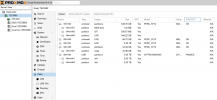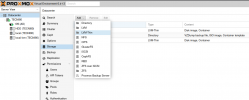While there are a few alternatives to Ceph, namely GlusterFS, neither is designed for use on a RAID'ed local disk. The distributed file systems are built with distributed data protection in mind. They replicate data for recovery from component failure, which means the blocks are replicated more than once in many cases.
Your local RAID will be replicating blocks locally (except R0 of course) and then Ceph/GlusterFS will be doing it on top of it. It doesnt sound like your disks are SSD so performance will be pretty bad.
If you cant change your controller to HBA only mode, where disks are exposed to OS directly, perhaps 8 R0 would do the trick, if it even allows you to create single disk R0. I foresee trouble doing disk replacements - how will perc react to single disk R0 failure? will you have to take the system down to reconfigure everything? In short, its not recommended...
As
@SkyDiver79 mentioned, the other alternatives are commercial products. Stormagic might be an option - it appears to run inside a VM on top of your hypervisor. Personally, I think you want the storage layer to be as close to raw hardware as possible. Datacore server only runs on windows. Based on what you said, I don't think that's an option.
For us, Blockbridge, we'd want to run on a dedicated server platform
https://www.blockbridge.com/platforms/. Isolating storage from compute will prevent competition between the two for the resources.
Ultra low latency all-NVME shared storage for Proxmox - https://www.blockbridge.com/proxmox



